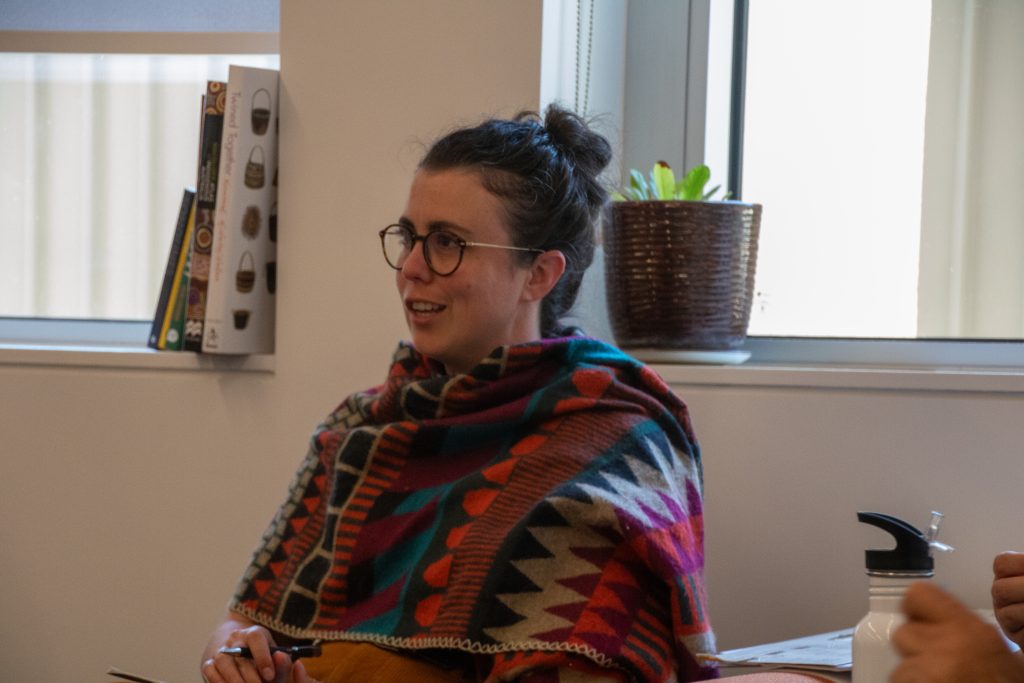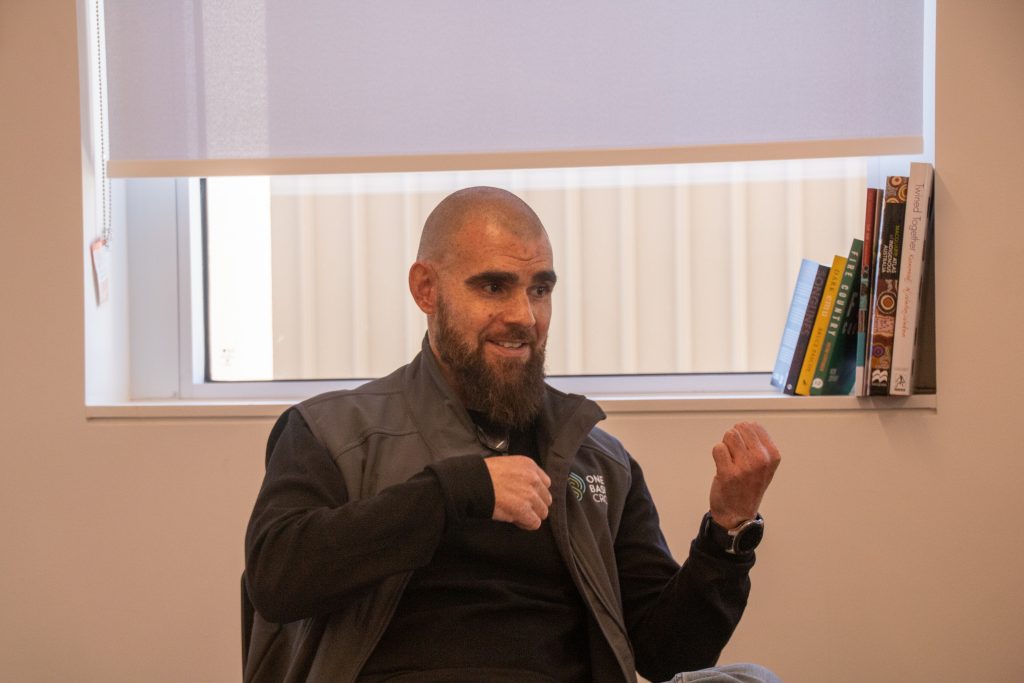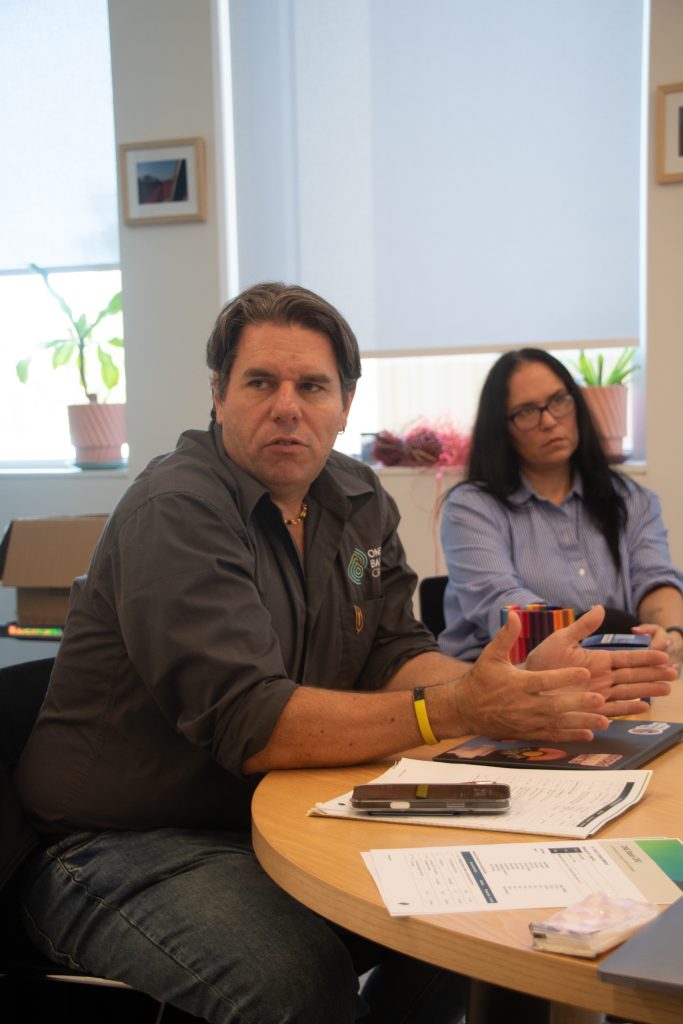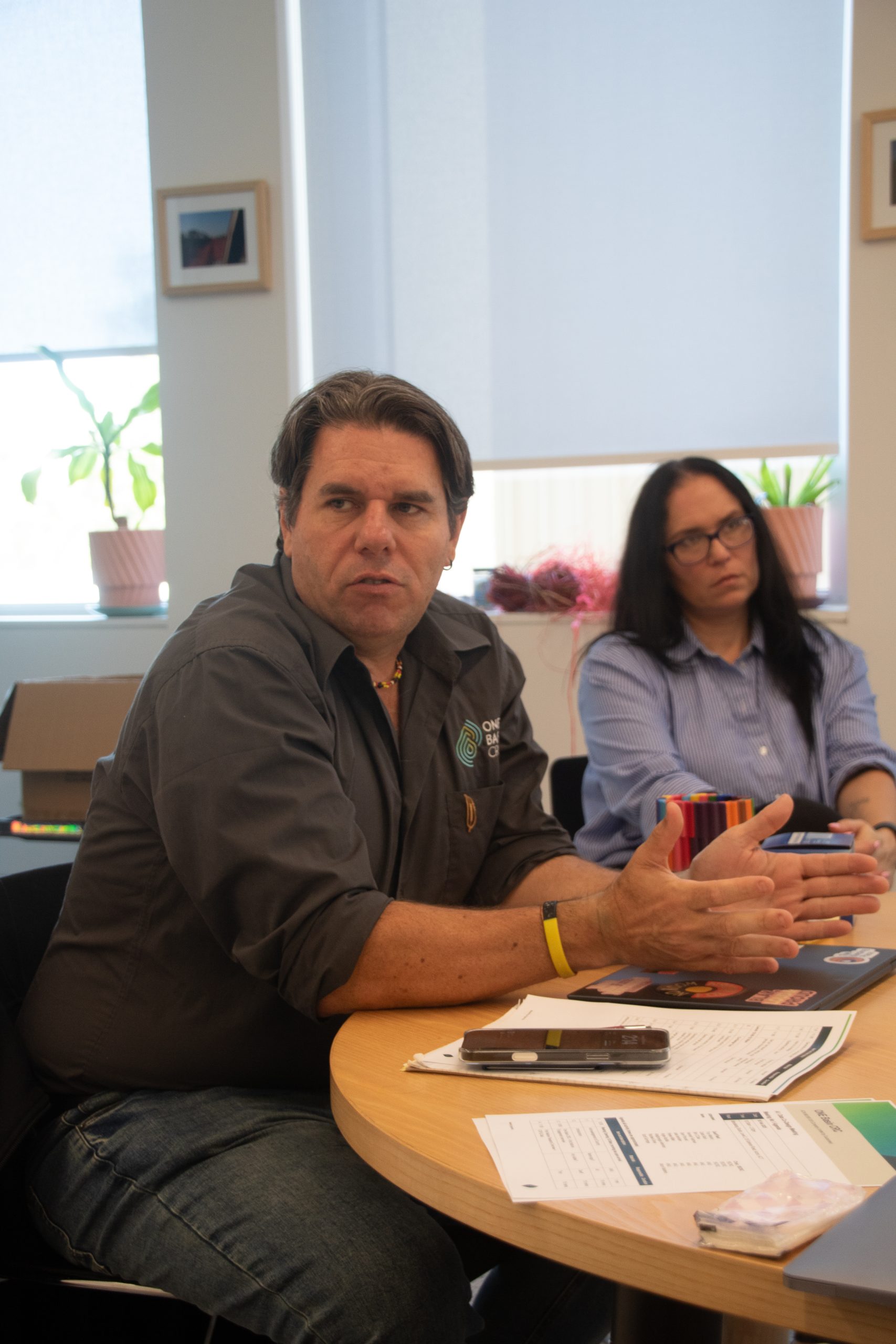First Nations Data Sovereignty co-design at ANU
news
Published 02 Apr 2025
Written by Caleb Back
The One Basin CRC’s First Nations Research Program has taken a significant step forward, with First Nations Program Leader, Professor Troy Meston, delivering the program’s first co-design meeting with the Australian National University (ANU) in Canberra.
This session focused on First Nations Data Sovereignty, the first of many First Nations-led projects identified in the CRC. The issue is critical, as communities across the Basin call for control over their own data, historically collected and used without Cultural approval. According to Professor Troy Meston, this has led to deep-seated scepticism toward institutions and a pressing need to rethink research engagement.
“Data sovereignty is a major barrier for First Nations-led research, so it makes sense for the CRC to tackle this challenge first,” Professor Troy Meston said.
“Communities need access to historical and contemporary information to build organisations, conduct research, repair Country, and protect Cultural knowledge,” Professor Meston said.
“Repatriating data according to Cultural needs allows us to reset the clock,” he said.
Dr Hannah Feldman, researcher in the School of Cybernetics at ANU, convened experts from diverse fields, including Indigenous technology and data scientists, ecology, cybernetics, and Indigenous water management. The session explored the complexities of First Nations data sovereignty and steps toward repatriating data to communities.

Hannah’s involvement stems from her commitment to ethical research and collaborative knowledge-sharing, as well as the possibilities for cybernetics – using a full systems approach to exploring complex technological challenges – to support data sovereignty.
First Nations data encompasses all data collected relating to People and Country, including oral histories, geographical mapping, environmental knowledge, and community records, existing in both physical and digital formats. Differing from Western data frameworks, it requires culturally appropriate protocols for storage and access that reshape how data is handled.
“Data repatriation won’t be an easy task. Communities will face barriers including legal restrictions, intellectual property laws, institutional bureaucracy, and once again paving new ways forward in the era of rapid tech and data development” Dr Hannah Feldman said.
“We have an opportunity through cybernetics and the CRC partnership to support all aspects of what that might look like, from technical requirements, right through to governance, community, and Country impacts,” Dr Feldman said.
“Addressing these issues requires a shake up in the way Western systems manage, store, and think about data,” she said.
Data repatriation is more than handing over information; it involves ensuring communities can access, grow, and manage their knowledge, as well as ensuring that the communities “handing over” any data are also appropriately supported to do so in useful, impactful, and ongoing ways.
Research efforts focus on developing secure digital repositories, Indigenous-led governance models, and ethical data-sharing principles will be critical for all organisations and communities in this complex data ecosystem to work together and continue water justice efforts through data.
“This project will be wholly First Nations-led, ensuring data is securely repatriated for community benefit,” Professor Troy Meston said.
“The digital divide is a critical issue – without access to tools and infrastructure, communities cannot fully control their information,” Professor Meston said.

Improving digital literacy is key to ensuring communities can access and control their data. Future project pathways will focus on governance structures, education and institutional investment in long-term infrastructure.
For many First Nations communities, reclaiming control over data means rethinking relationships with governments, universities, and institutions. Establishing governance structures that reflect First Nations decision-making is crucial, but requires shifts in institutional operations.
“There isn’t a one-size-fits-all approach; each community and organisation will have a range of strengths, challenges, and supports,” Dr Hannah Feldman said.
“The data we’re talking about takes a number of forms, including audio files, maps, video, and many more” Dr Feldman said.
“Supporting how institutions and communities engage with these forms of data is a complex and exciting opportunity, and an opportunity that needs to have far more contributing voices than just government, academia, or communities themselves,” she said.
“I’m really excited to shake up conversations on First Nations data sovereignty and play a role in ensuring its repatriation to communities.”

First Nations data sovereignty requires a collaborative and holistic approach. Co-design is just one step toward broader societal change. By engaging with like-minded institutions, better ways of storing, disseminating, and sharing information can be developed, strengthening the relationship between First Nations communities and their Cultural knowledge.
This first meeting has helped the One Basin CRC to consider its thinking and bring a multidisciplinary approach to this project’s design. What does good governance of centrally held data look like? Is it centrally held? Can it generate revenue for a First Nations led Data Sovereignty organisation? If successful, can this be a model for other countries? If AI is introduced, can it become a dynamic resource to house knowledge beyond what we think of as historical libraries? The One Basin CRC looks forward to continuing to share the story of this research journey.
Learn more about the First Nations research program.
Latest news & events
All news & eventsA Collaborative Declaration Towards a Sustainable and Productive Murray–Darling Basin
Read MorePublic First Nations Data: is it Data Nullius?
Read MoreAboriginal and non-Aboriginal scientist knowledge shared on-country at Toorale: a case study to encourage non-Aboriginal scientists to take their first step
Read MoreTechnology and trust: stories from One Basin CRC’s next generation
Read More